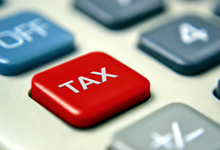Directors: Fighting Corruption via Your Social and Ethics Committee

“South Africa has lost R700 billion to corruption over the last 20 years” (Institute of Internal Auditors)
The Companies Act requires a company to set up a Social and Ethics Committee if it is:
- A listed company
- A state owned entity
- A company with a public interest score of over 500 in two of the last five years.
Social and Ethics Committees have a broad mandate to reduce corruption, to ensure that B-BBEE and Employment Equity Act programs are compliant with legislation, to be a good corporate citizen uplifting society around them and to ensure all employees are treated fairly and equitably.
The Companies and Intellectual Property Commission (CIPC) is empowered to issue guidelines and practice notes on aspects of the Companies Act.
The CIPC guideline
The purpose of this guideline is to get companies to actively fight corruption and to set up a Corporate Compliance Program along the lines of the OECD (Organisation for Economic Co-operation and Development) Recommendation on corruption.
This initiative of the CIPC is a response to State Capture and to corruption scandals in the private sector. Corruption is becoming endemic in our society and can only be turned back and stopped by a comprehensive program.
The compliance program
- The starting point is commitment from top management to instil into the culture of the company that corruption is unacceptable across the organisation. Senior management should ensure that the Compliance Program is communicated on an ongoing basis to all stakeholders.
- A risk-based approach should be used to identify all potential corruption risks and on a continual basis manage these risks throughout the company. A database of all information gathered should be continually fed back to staff and stakeholders, and shared with other organisations fighting corruption.
All activities in the company should be undertaken with the risk management process underpinning these processes.
- An ongoing due diligence program should verify who the company is dealing with.
- Policies and procedures should be implemented and these should be clear-cut and easy to understand.
- Compliance training is to be undertaken and all staff and key stakeholders included in the training.
- Whistle blowing is to be actively encouraged and separate channels should be set up for whistle blowers to communicate any wrongdoing they become aware of. Whistleblowers need to be protected against reprisals and victimisation.
- A high level of auditing and investigative capacity needs to be implemented. Corruption, as we know, needs to be continuously attacked until it is completely uprooted.
We are all losers when it comes to corruption, so even if your business isn’t required to form a Social and Ethics Committee, consider what steps you can take to fight it.
Finally, don’t just follow the law and think that is enough. Those implicated in State Capture or private sector malfeasance protest they have broken no laws. Equally important is to practise good governance by implementing transparent and ethical norms.
Small Businesses: Reap the Benefits of Cashless Transactions

“Mobile devices, high-speed data communication, and online commerce are creating expectations that convenient, secure, real-time payment and banking capabilities should be available whenever and wherever they are needed” (Chair of the Federal Reserve of the United States, Jerome Powell)
South Africa is already a cash-heavy economy as it is and this reliance on cash is financially and socially costly for the economy. This cost alone is estimated at approximately R88 billion per year. This number is calculated by the Payments Association of South Africa (PASA) and is derived from consolidating the costs to consumers, businesses, banks and the SARB and is made up of both direct financial and indirect social costs. “The direct financial costs primarily relate to transactional fees incurred by end-users, the costs of printing cash, the supply of cash, and the maintenance of the expensive cash infrastructure (ATM’s, branches and cash centres). The social indirect costs relate to unnoticed factors like time wastage, investment opportunity lost, inflation, crime and others”, according to the Association.
“Fintech” solutions such as tap-to-pay, interbank instant deposits, eWallet, PayPal, Snapscan, Zapper continue to grow in popularity, primarily because of considerations around minimising exposure to Covid-19 and social distancing. 61% of respondents interviewed during the survey cited social distancing as a driver for digital commerce.
General Manager at Business Partners Limited, Jeremy Lang says “In this new ‘less-cash’ society, the worst thing that any SME can say to a customer is, ‘I don’t accept that method of payment.’ This means that South African businesses are under significant pressure to adapt and evolve their mentality towards digitisation. It is a change for the better, for a number of reasons and we urge all SMEs to get onboard and use digitisation as a way of establishing a competitive advantage going forward.”
Cashless transactions come with the following benefits:
- Increased safety
Cash exposes the user to higher risk due to the physical exposure to a third party. There is a high risk in holding cash, where users are at risk of theft and leakage. In the current Covid-19 environment, the less contact with cash the better due to safety reasons. - Cashless is more convenient
Another major appeal in cashless commerce is the convenience of having your “money” in a central depositary that you have access to at any location and time, without having to physically count it. - SMEs can keep better records of their transactions
A paper trail of every digital transaction lives in a cloud – and can therefore be accessed by either the account holder or the financial service provider should there be a need to reference the transaction in future. - “Cash Is Expensive for South Africa”
This is according to the Payments Association of South Africa. In its “Modernised Real-time Electronic Retail Payments: A Case for Change for South Africa” report, there is a Cost of Cash to Businesses section, which states that “when assessing the cost of accepting payments for businesses, cash is largely perceived as cheaper than card-based payments (POS and QR codes).”“However, businesses often do not account for all the costs associated with accepting cash payments (e.g. the risk of theft, leakages, infrastructure costs for safes, tellers etc.) over and above the costs associated with depositing this cash. On average, for smaller businesses, cash deposit fees are about 1.5% including the fixed base costs, which is significantly lower than the average merchant service fees (MSF) for accepting card payments. However, if we include the indirect costs of cash acceptance utilising the same proportion of indirect costs for the cost of cash to consumers, then the true cost of cash for businesses increases to approximately 3.4% for small businesses,” it clarifies.
Take professional advice on the best and safest ways to take advantage of the cashless transactions trend.
Your Tax Deadlines for September 2021

- 07 September – Monthly Pay-As-You-Earn (PAYE) submissions and payments
- 23 September – Value-Added Tax (VAT) manual submissions and payments
- 29 September – Excise Duty payments
- 30 September – Corporate Income Tax (CIT) Provisional Tax payments where applicable
- 30 September – End of the 2nd Financial Quarter
- 30 September – Personal Income Tax (PIT) top-up Provisional Tax payments.
